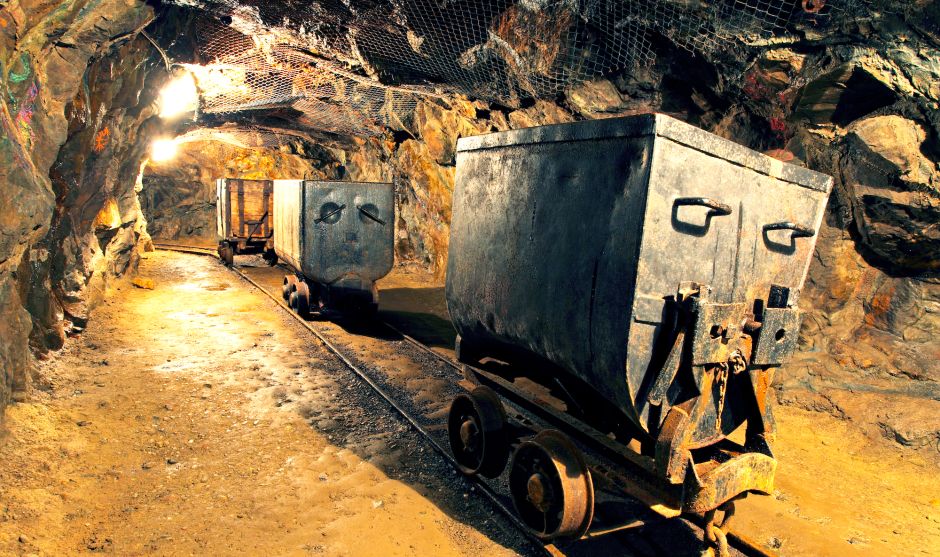Maersk: Lack of minerals and green electricity for decades to come

Mineral and labor shortages will likely limit the availability of green electricity well into the 2040s. Shipping should therefore not rely solely on electrofuels during the conversion work to freedom from fossil fuels. This is what the Maersk Mc-Kinney Møller Center writes in a new report and lists four limiting obstacles to the production of green electricity.
Lack of copper and labous are among four key constraints that may hinder the supply of renewable electricity to the maritime industry in the 2030s and 2040s, potentially leading to a shortage of e-fuels. In a new report the Maersk Mc-Kinney Møller Center recommends shipowners not to solely rely on e-fuels.
Shipping's green transition will depend on alternative fuels. Of these, e-fuels, i.e. liquid fuels based on hydrogen and carbon dioxide, are often predicted to be the major enabler. E-fuels can be produced wherever there is enough green energy to extract hydrogen from water and where carbon dioxide is available from emission sources such as large chimneys. Sweden is considered to have excellent conditions for this - with a lot of forest and water and through the expansion of wind power and possible nuclear power, it has been claimed that we can not only become self-sufficient but also an exporter of e-fuels.
So what about the international perspective? According to the Maersk Mc-Kinney Møller Center for Zero Carbon Shipping's report Will renewable electricity availability limit e-fuels in the maritime industry? is the long-term potential for access to renewable electricity more than sufficient to meet the demand to reposition all industries globally. In the shorter term, until 2050, however, there is doubt as to whether there is enough capacity to scale up renewable electricity production fast enough to meet the huge demand the world is facing.
Behind the report lies literature studies, collection of industry data and interviews with industry experts such as energy companies, technology suppliers, regulatory authorities and financial companies. The researchers also analyzed the political climate and regulatory systems in six countries with high technological potential for wind and solar energy installations. And while national policies vary, and the situation is unique in each country the researchers found that most countries were increasingly in favor of renewables.. The conclusion is therefore that regulations and policies are not major obstacles to increasing the production of green electricity.
With material and resources it’s another story. According to the report, there are four key constraints that may limit the availability of green electricity to the shipping industry in the 2030s and 2040s, and which could thus result in a shortage of e-fuels:
- The most concerning contraint is the limited supply of copper, a key material for solar and wind power plants and whose supply is increasing at too slow a pace.
- Nickel is also a concern, as it is already in high demand. Nickel is used in electrolysers, which will be essential for producing hydrogen from renewable electricity and electrofuels.
- A shortage of rare earth metals risks limiting wind power installations. However, this problem can be overcome by using geared rotors that do not rely on rare earths.
- Lack of labor and skills. This can affect the entire supply chain, from the installation and maintenance of solar panels and wind turbines to the manufacturing of transmission components. Labor could indeed be moved from the oil and gas industry, but this takes time as retraining is required.
To avoid a shortage of renewable electricity and e-fuels, the report recommends the shipping industry to secure agreements for long-term supplies of green electricity before other sectors are on the ball. If not, the shipping industry should count on having to use other fuels during the transition period.
-
 Ny studie: Eldrivna pendelbåtar kan effektivisera Stockholms kollektivtrafik
Ny studie: Eldrivna pendelbåtar kan effektivisera Stockholms kollektivtrafik -
 Sjöfartens utsläpp ökar
Sjöfartens utsläpp ökar -
 Sociala relationer påverkar val av bränsle
Sociala relationer påverkar val av bränsle -
 Sjöfartens omställning kräver ”mjukare” påtryckningar
Sjöfartens omställning kräver ”mjukare” påtryckningar -
 Hon hade avtalad tid med Kapten ynkrygg
Hon hade avtalad tid med Kapten ynkrygg -
 Lighthouse omvärldsanalys 2025 – osäkerhet och tullar präglar sjöfarten
Lighthouse omvärldsanalys 2025 – osäkerhet och tullar präglar sjöfarten -
 Se seminariet Shipping in the Marine Environment
Se seminariet Shipping in the Marine Environment -
 Vad betyder egentligen de 90 procenten?
Vad betyder egentligen de 90 procenten? -
 Hålla där...
Hålla där... -
 Ny rapport: Klimatförändringarna ett hot mot de flesta större hamnar i världen
Ny rapport: Klimatförändringarna ett hot mot de flesta större hamnar i världen

